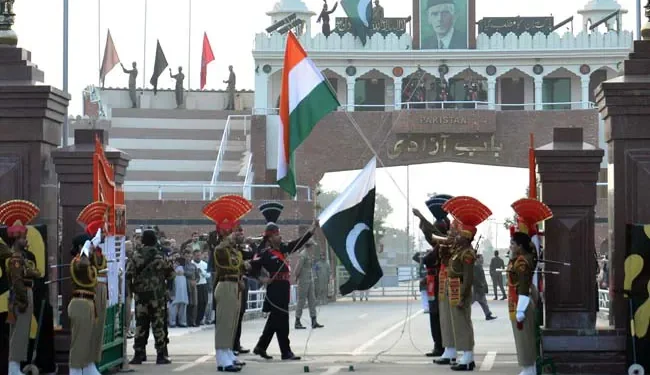In a sharp escalation of tensions between India and Pakistan, the Indian government has issued an urgent 48-hour ultimatum for all Pakistani nationals residing in India to leave the country. This bold move comes in response to the deadly terror attack in Pahalgam, which claimed the lives of 26 Indian tourists. The Indian Ministry of External Affairs (MEA), led by Foreign Secretary Vikram Misri, announced the sweeping measures during a press conference earlier today.
The Ultimatum and Its Rationale
Foreign Secretary Misri stated that the expulsion order is a direct result of “continued support to terrorism” from elements based across the border in Pakistan. The Indian government has blamed Pakistan for harboring and supporting terrorist groups responsible for the Pahalgam attack and previous strikes on Indian soil.
“In light of the ongoing threat posed by Pakistan-based terror groups, the government has decided that all Pakistani nationals must leave India within 48 hours,” said Misri.
Alongside the expulsion order, India has suspended the Indus Waters Treaty, a historic agreement governing water-sharing between the two nations. Misri confirmed that all operational activities related to the treaty have been put on hold indefinitely.
Closure of the Attari-Wagah Border
In a further escalation of measures, the Indian government has closed the Attari-Wagah border crossing, one of the last remaining formal points of entry and exit between the two countries. This move will severely disrupt cross-border travel, trade, and the movement of people, further isolating the two nations at a time when tensions are already running high.
Impact on Pakistanis in India
The closure of the Attari-Wagah border and the expulsion of Pakistani nationals are expected to affect thousands of Pakistani citizens residing in India for work, education, and family purposes. Pakistani diplomats and other personnel have been given similar instructions to leave within the 48-hour window.
This decision marks a significant deterioration in bilateral relations, recalling the earlier instances of military confrontations between the two nations following terror attacks in Uri (2016) and Pulwama (2019). In those cases, India responded with military strikes on Pakistani-administered territories, leading to further escalation.
Pakistan’s Response
In reaction to India’s actions, Pakistan has reportedly tightened its borders and placed its military on high alert. Pakistan’s Ministry of Foreign Affairs has condemned India’s decision, labeling it a “unilateral escalation” and a violation of international diplomatic norms.
A Tense Situation
The Pahalgam terror attack, attributed to Pakistani-based militant groups, has once again inflamed hostilities between India and Pakistan. While both nations possess nuclear capabilities, the current tensions have triggered fears of further violence or military escalation. Both governments have refrained from openly discussing military strikes thus far, but experts warn that the situation could quickly escalate into broader conflict if diplomatic efforts fail.
What Comes Next?
With the Attari-Wagah border closed, the Indus Waters Treaty suspended, and thousands of Pakistani nationals facing expulsion, the path ahead for India and Pakistan looks increasingly volatile. International pressure, especially from neighboring countries and global powers, could play a crucial role in preventing a full-blown crisis.
As both sides brace for further moves, the 48-hour ultimatum and the closure of the Attari-Wagah border serve as the latest chapter in the enduring India-Pakistan conflict, with no clear end in sight. Will this be the breaking point, or will diplomatic dialogue pave the way for a de-escalation?
Related stories:
Pakistan Shuts Airspace for Indian Flights, Suspends Trade, Cancels Visas
What Is the Indus Waters Treaty—And Why Is India Suspending It Now?
















